From Shame to Celebration: Mercy Ships Women’s Health Program
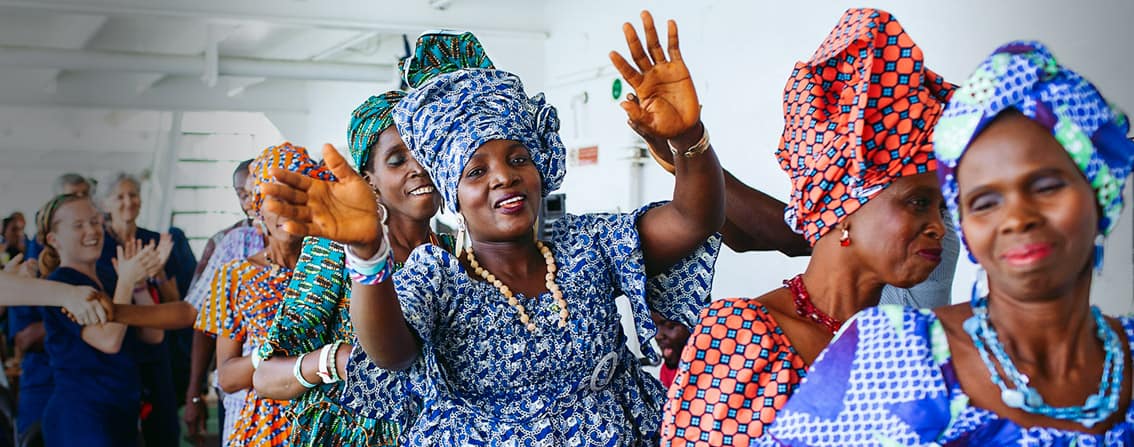
Welcoming a new baby into the family should be a time of pure joy and celebration. But for an estimated 100,000 women around the world each year, childbirth instead ended in a devastating injury.
Obstetric fistula is a condition that often occurs during prolonged and obstructed labor when women don’t have access to adequate maternity care. Not only does it sometimes result in a tragic stillbirth, but it can also leave women incontinent and permanently leaking urine.
On May 23, the world observes International Day to End Obstetric Fistula, a day to raise awareness and rally support for a solution. In honor of the many women who suffer from this condition, we’re here to shine a spotlight on their stories and share how our Women’s Health surgical program is making a difference.
The Devastating Impacts of an Obstetric Fistula
The impact of an obstetric fistula goes far beyond the physical. As a result of being incontinent, many women experience tragic social shunning and find themselves on the sidelines of their communities and sometimes even their families. Being outcast from society often leads to deep feelings of shame and loneliness. For women who don’t have the means to afford surgery, there’s no end in sight: without surgical intervention, the condition can last for the rest of their lives.
Of course, the social and emotional implications of this condition make seeking help particularly challenging. For many women, social ostracism has been a demoralizing and painful part of their condition. Coming to the ship to receive healing requires being among large groups of people and often traveling a far distance. Every woman who comes onboard our ships to receive fistula repair surgery has already overcome incredible obstacles just by arriving.
Celebrating Stories of Hope Together
Freedom from obstetric fistula changes physical, emotional, and social wellbeing for women who live with this condition. There is one special day onboard our ships that highlights this transformation more than any other: the Dress Ceremony. After each successful round of recovery from fistula repair surgeries, the community onboard gathers to celebrate our patients.
During Dress Ceremonies, the recovered women receive beautiful dresses to wear and can share their story with the community. There are bright colors and plenty of hugs — and, always, there is dancing. Because OBF surgery is more than physical healing from a debilitating disease. It’s a chance to reenter society, reconnect with community, and walk from shame into freedom.
“I had this sickness for five years… but, today, it is finished! Now, when I wake up, I find myself dry. I’m fine – I have no problem now!” shared Bibiane, a mother of five who received surgery to heal her obstetric fistula in Benin.
Jacqueline had been abandoned by her husband and shunned by her community after living with an obstetric fistula. Finally, after eight years of suffering from incontinence, Jacqueline was healed during our field service in Cameroon: “I’m tired of living how I’ve been living, but now I am stronger and will have more opportunities!”
A difficult stillbirth left Mairamou with a shattered heart and a debilitating obstetric fistula. She prayed every day for healing from her disease. Finally, after her surgery onboard the Africa Mercy in Cameroon, Mairamou was ready for a new beginning: “There is a big difference in my heart. Before, I was worried and had bad thoughts. I’m a different person. I am free to go wherever I want. My doubts are gone!”
Building Healing Connections Through Our Volunteers
Surgery is the starting point for recovery – but the community onboard plays its own unique healing role. It’s not only the medical crew that bring hope and healing to our Women’s Health patients. From the day crew who help us translate to the volunteers in reception who greet each passing patient with a huge smile, everyone onboard has a part to play in making each woman feel seen and valued.
The impact is felt. In the words of Tam Lowe, a previous Obstetric Fistula clinic team leader from Australia: “Being a woman and coming from a western culture, we don’t go through this. It’s nice to be able to give these ladies back their lives, because they lost a little part of themselves when they went through what they went through. Now, they can go back home and say ‘Look at me. I’m back.’”
Partnering Long-Term with Local Organizations
Beyond providing free surgeries to repair obstetric fistula conditions, how else does Mercy Ships invest in women’s health in our partnering countries? We strive to leave a lasting impact by collaborating and investing in other nonprofits and clinics based in our host nations. Through partnership and training, we can continue to support health system strengthening long after our ships leave. Our ongoing partnership with Freedom from Fistula, a charity based primarily in Madagascar and Sierra Leone, helps to provide free surgical repairs for patients suffering with fistula as well as preventive maternity care to stop fistulas from occurring in the first place.
Join Us in Sharing Hope
This International Day for Women’s Obstetric Fistula, we’re celebrating the courageous women whose lives have been transformed — and the many more to come when we return.
Want to join us in our mission? Discover more about our open positions and find your place onboard >>
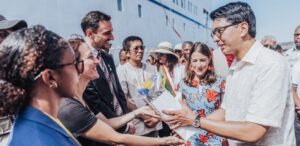
Mercy Ships Welcomes Presidential Visit on board, in Toamasina Harbor
Presidential Visit: Malagasy president His Excellency Andry Nirina Rajoelina visited patients and volunteers on board Mercy Ships’ hospital vessel to see for himself the lives being transformed.
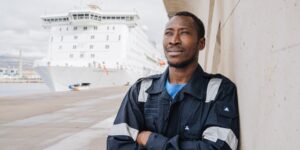
Day of the Seafarer: One Maritime Volunteer’s Story
On this Day of the Seafarer, Mercy Ships wants to honor all the people like Ishaka, volunteer assistant bosun on board the Global Mercy.
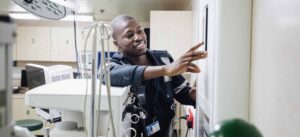
An Electrician’s Journey to Finding Purpose and Professional Growth
When Jean Jacques Diouf came on board for the 1st time, he’d packed his suitcase with enough supplies for one week. Learn more about his professional growth!
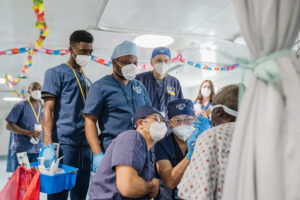
THE MSC FOUNDATION, THE MSC GROUP AND MERCY SHIPS INTERNATIONAL JOIN FORCES TO BUILD A NEW HOSPITAL SHIP
The new purpose-built hospital ship will expand the impact of Mercy Ships’ life-changing surgeries, anaesthetic care and surgical education for future generations of patients and healthcare professionals in sub-Saharan Africa.
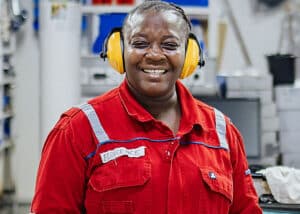
The Woman Who Forged Her Way Through Walls: Florence Bangura’s Story
Florence’s journey from oldest to newest Mercy Ship came full circle when she met the Global Mercy™ in 2023, the same year that the purpose-built hospital ship began welcoming its patients on board. Today, you can find Florence, now 49 years old, down in the engine room as a hotel engineering assistant.

Transforming Sierra Leone’s Healthcare: A Vision for Safe and Affordable Surgery
As experts from the surgical and healthcare world gather for the 64th Annual Conference and Scientific Meeting of the West African College of Surgeons in Sierra Leone this week, a profound dedication to advancing surgical knowledge and practice in the region is palpable. At the forefront of discussions lies the conference’s pivotal theme: access to safe and affordable surgical and anesthetic care in West Africa. This theme highlights the pressing need to address disparities in healthcare capabilities and capacities across the region, especially the critical importance of equitable access to quality surgical interventions.
Share
Related posts
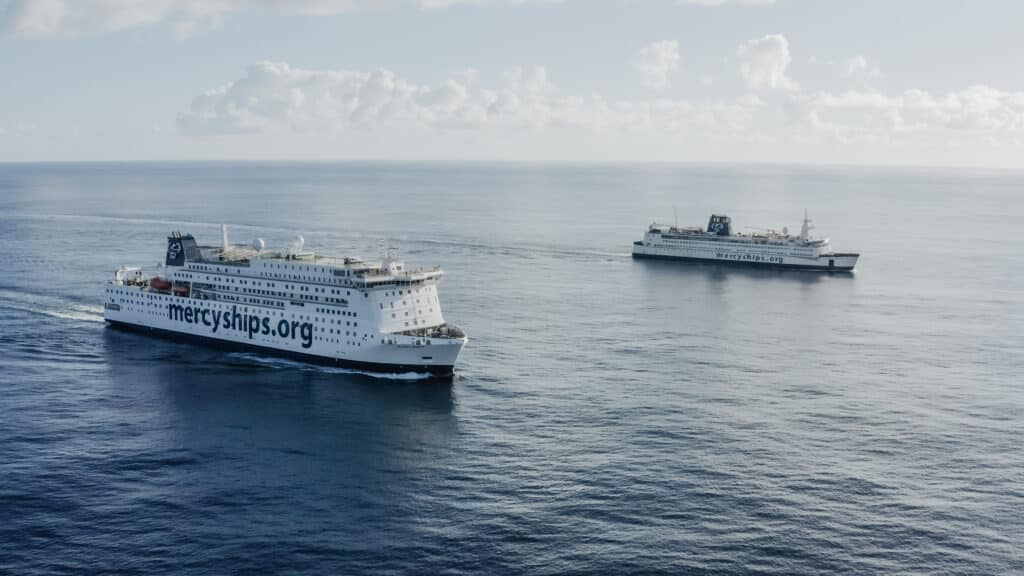
NOTICE OF BOARD VACANCIES MERCY SHIPS CANADA
Mercy Ships Canada is seeking up to three dynamic independent Directors to join our Board over the next 18-months.
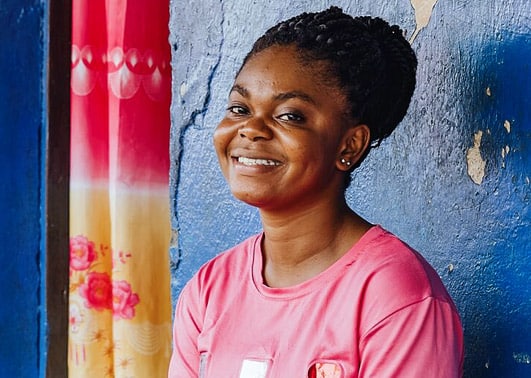
Igniting Hope-Thank you message from Darryl Anderson
Darryl Anderson shares his thank you message to express his deepest gratitude for your unwavering support and dedication to our mission.
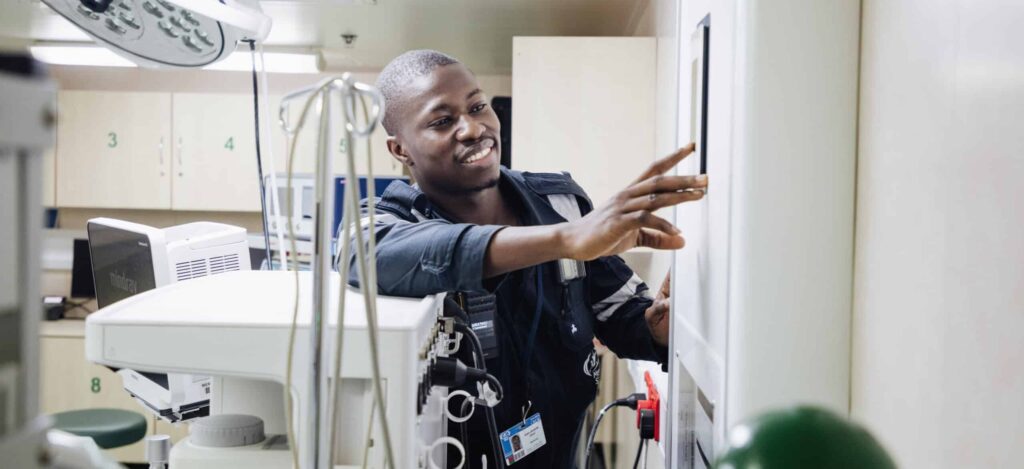
An Electrician’s Journey to Finding Purpose and Professional Growth
When Jean Jacques Diouf came on board for the 1st time, he’d packed his suitcase with enough supplies for one week. Learn more about his professional growth!
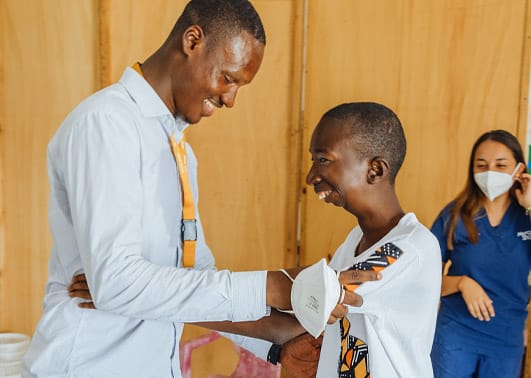
How the Mercy Ships National Crew Took on the COVID-19 Pandemic in Senegal
On a hospital ship when the pandemic hit, a member of Mercy Ships National Crew was inspired to continue humanitarian work in Senegal.
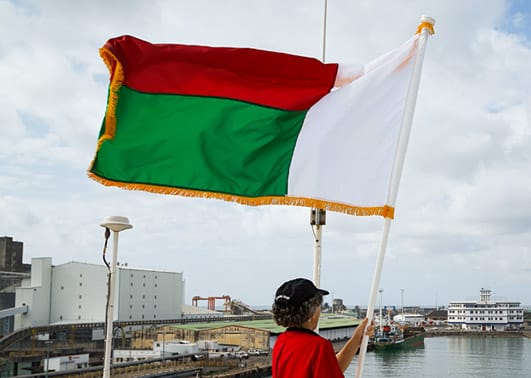
Madagascar Welcomes Mercy Ships for Next Field Service in 2024
Following a series of recent meetings between the Ministry of Health and Mercy Ships, the Africa Mercy has officially been welcomed to return to Madagascar for her next field service. The hospital ship is planned to initially dock in the port of Toamasina in February 2024.
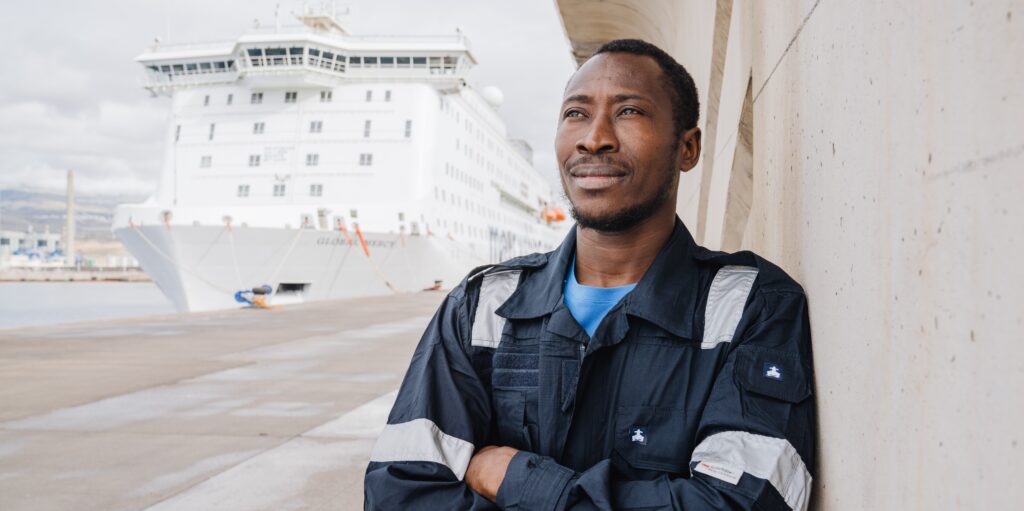
Day of the Seafarer: One Maritime Volunteer’s Story
On this Day of the Seafarer, Mercy Ships wants to honor all the people like Ishaka, volunteer assistant bosun on board the Global Mercy.
